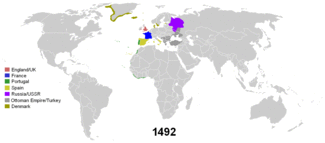|
>>
|
No. 73949
File
143701752128.gif
- (100.60KB
, 1425x625
, Colonisation2.gif
)

>>73948
>After Europe abolished slavery I thought insitutionalize slavery was mostly just an American thing, am I wrong? American slavery was definitely more fucked up than what the Europeans did.
If you mean "American" as in "all of North and South America" you'd be sorta right. Slavery in the United States, however, was relatively light, and we only had like 5% of the total slave population. Most slaves went to Central/South America and the Caribbean, mostly owned by the Spanish or the Portuguese though most other western European countries had colonies peppered throughout. Brazil itself had almost half the overall slave population and was one big, hellish sugar plantation. Chile was one big, hellish silver mine.
Also, Europe didn't hellza universally outlaw slavery before the US did. Britain outlawed the slave trade and largely tried to wash their hands of it during a time of liberalism. France and Spain were basically forced to give it up when their colonies started rebelling. Latin American history is not the longest but it is complicated as fuck, which is why they don't teach it so much in schools.
African colonies were mish-mash, Europeans only mostly had coastal colonies where all the big cities were and used it for trade, much of the inner land being barren and lacking in resources, or so they thought. Even after slavery fell out of vogue in Europe they still had no qualms about raping the land and populace thoroughly. Even then Leopold II of Belgium did make the Congo a huge slave colony for personal benefit, long after slavery had fallen out of favor. For being all liberal and outlawing the slave trade before most others, the British still had no qualms about screwing over the local populations of Asia for tea and coffee. There still wasn't a strong sense of making these places more civilized or habitable, just better cash cows and resource farms.
>In regards to this, I think looking at how Africans enslaved their own people isn't shifting the blame, it's highlighting how silly it is to look at that era of slavery as a racist thing.
Slavery and broader colonialism were mostly motivated by money, but it's silly to say that racism isn't important in the whole thing. Racism and the idea of white supremacy were how it was so successfully sold, generation after generation, to the common white people in Europe and in the colonies. It's also a lot easier to treat someone as sub-human and justify it when they look different from you. The slaveowners weren't just tricksters, they did sincerely believe that it was okay to enslave non-whites because of supremacy.
It is true that it wasn't exclusively a white-on-black thing. The focus on them is relevant, however, seeing as they were not only enslaved but re-written and disconnected so thoroughly. It reminds me of a scene on Scrubs where you have a married black and hispanic woman arguing about which culture to raise their baby. While the Hispanic knows she is Dominican and has a strong sense of heritage and connection to her ancestors through her upbringing, where the black guy not only doesn't know which part of Africa he comes from or his cultural heritage, but doesn't even hellza care to find out. Even during the movement to try to connect to African roots starting in the 60s and 70s, it all seemed hollow and general. Kwanzaa isn't a real holiday, and that "African" name you just gave your baby is only used sparsely in a small part of Africa. The fact that most people outside of Africa see sub-Saharan Africa as just one big black blob of miserable countries is evidence of how thoroughly the diverse culture of Africa has been scrubbed out and replaced with some Frankenstein's monster culture.
|